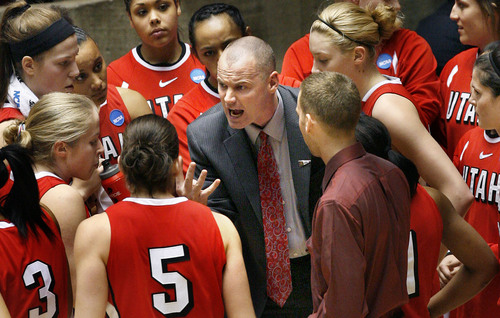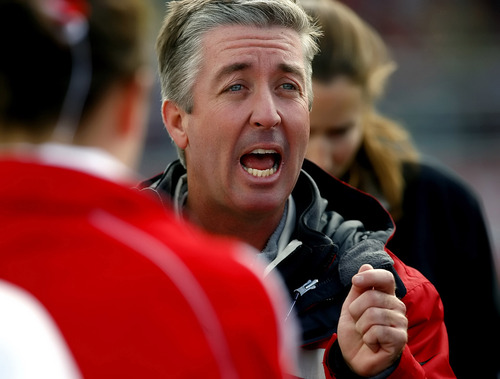This is an archived article that was published on sltrib.com in 2014, and information in the article may be outdated. It is provided only for personal research purposes and may not be reprinted.
A hard fact looms over all this talk of change in college sports.
Somebody has to lose.
If football and men's basketball players are to have a greater share of the revenue pie, then somebody else's slice must get thinner.
It seems unlikely that those somebodies will be the commissioners, athletic directors and coaches who are paid top dollar because (their organizations believe) they drive revenue in college football and basketball that keeps the rest of the operation afloat.
After all, University of Utah officials didn't make Kyle Whittingham the state's highest-paid employee — about $2.4 million annually — because he's such a nice guy. They think they got a deal.
In 2012-13, revenues less expenses for Whittingham's football team totaled $13.3 million, according to the Department of Education. Take football out of the equation, and all the rest of the sports combined lost $9.7 million.
At a sit-down after Pac-12 Media Days last month, a reporter asked Commissioner Larry Scott if he believes nonrevenue sports are vulnerable amid a sea change in the NCAA.
"I do if there are some radical solutions that get foist[ed] upon us by the courts, like employee-employer status, collective bargaining, being able to pay student-athletes whatever their market value," he said. "If that happens, so much of the existing resources are going to get sucked toward football and away from the 7,000 student athletes and $126 million in scholarship money we're giving across the board."
Scott wrote a column earlier this year for USA Today, on the heels of a decision by the National Labor Relations Board that allowed Northwestern football players to unionize, that warned such actions could "destroy" college sports.
For now, Utah women's basketball coach Anthony Levrets says he's trying to focus on what he can control.
However, he acknowledges, the fear that many of the positive changes through the years to give nonrevenue athletes more opportunities could be taken off the table. "You hope to never see those kind of things go away," Levrets says.
Change is only natural, says Utah women's soccer coach Rich Manning. As it comes, though, "there's going to be different parties pulling to get their share of it."
Manning believes Title IX and federal financial-aid regulations will prevent things from getting too out of whack for nonrevenue teams.
Utah Athletic Director Chris Hill has further assured Manning — with the caveat that neither he nor anybody knows exactly where this is all going — that Utah's student-athletes always will be his first priority.
Manning says revenues from Utah's success and move to the Pac-12 have helped his team in recent years, and that when the football and men's basketball teams get extra services — nutritionists, trainers and a sports psychologist — that it benefits his team, as well.
"We hope that this seismic shift continues to support all athletes," he says.
Still, even if nonrevenue sports emerge unscathed financially, there are questions about competitive balance in those areas. For instance, the NCAA v. O'Bannon ruling would allow football and men's basketball players to receive full cost-of-attendance stipends and to profit off their likenesses by at least $5,000 per year — to be placed in a trust until after they leave the school. What if that ruling were extended to all sports — as logic and Title IX seem to dictate? Could North Carolina then go out and create a U.S. Women's National Team lite for its women's soccer program?
Manning says "that's for sure one of the question marks," although he believes that in women's soccer, without the lure of a top-dollar pro league, most players are more concerned with how a school will help them begin their off-the-field careers.
Twitter: @matthew_piper





